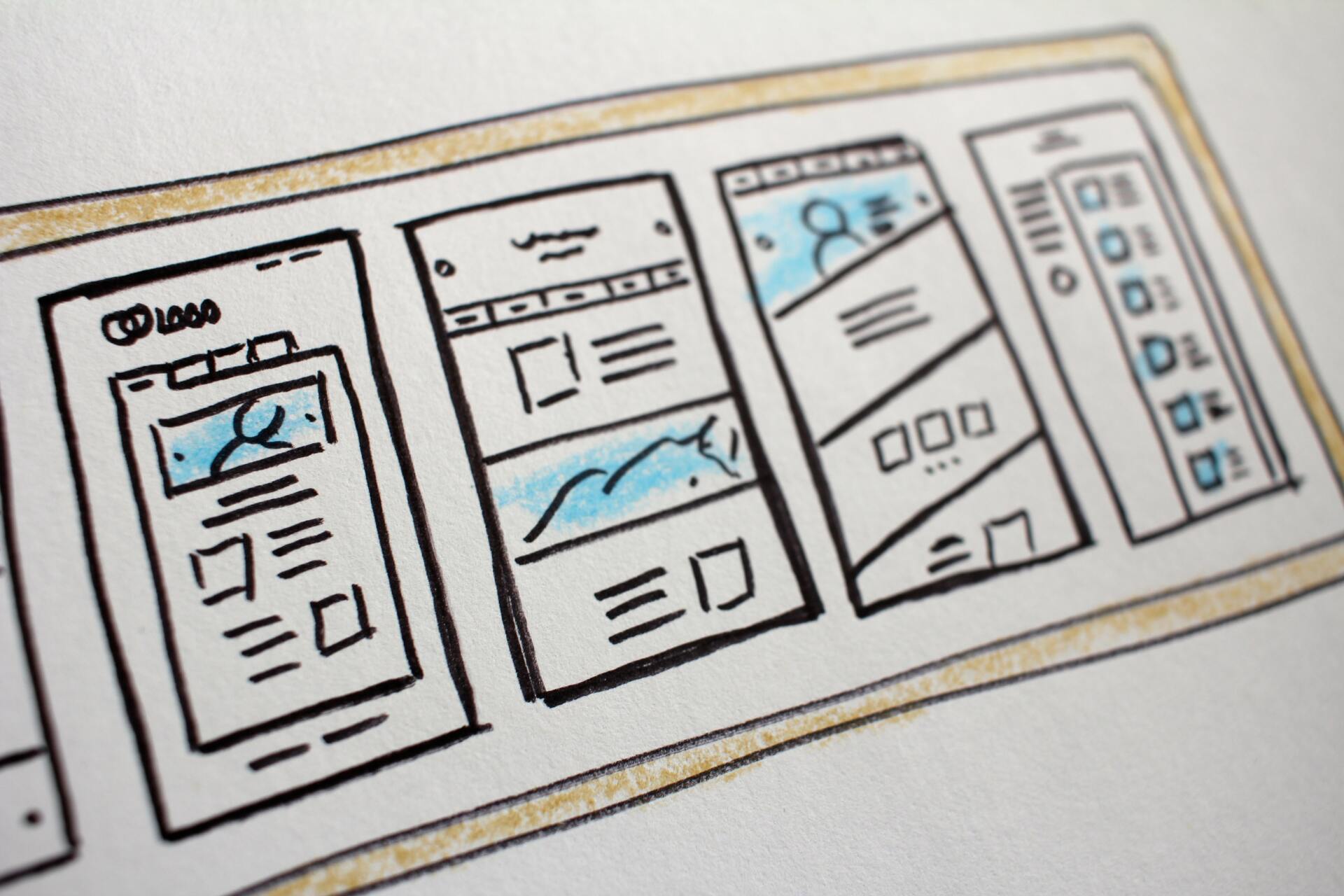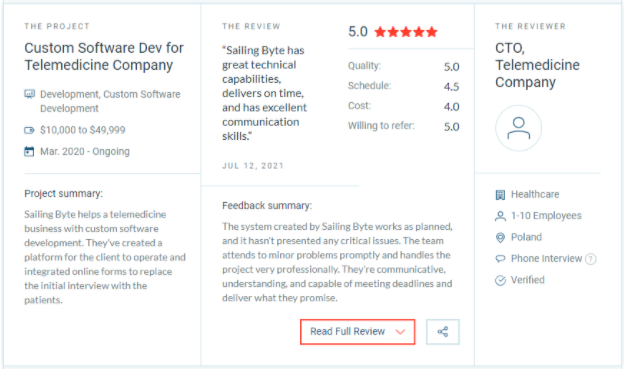Front-end development, back-end development, and PHP software house
You perfectly know when you are dealing with a great website. Whenever you enter one, you can see that all elements are well laid out and the colors are pleasing to the eye. The website is fast but does not overwhelm you with the amount of text or moving elements. The whole is just like a harmonious set of jigsaw puzzles. Congratulations are in order! Unfortunately, not to you (at least not yet!) but to somebody who has done a lot of hard work. That somebody is a front end developer. They are responsible for the development of the graphical user interface of a website. Using popular programming languages like HTML, CSS, and Java, front end developers make it possible for users to interact with the contents of a website.
Working on a website can be compared to many other places of work. A front-of-house (front-end) is the part where the elements are in direct relation with the customer. They all need to be presentable and pleasing in order to be appealing. But every front has its back. Back of house in website development is back-end. Back end developer works on the server side of the software. Back end web development focuses on everything a customer cannot see on a website. Back-end developers' job is then to make sure the website performs correctly. They focus on databases, back-end logic, application programming interface (APIs), architecture, and servers. Back end developers create dynamic, interactive websites. Mostly they use PHP (Hypertext Preprocessor) scripting language.
Both, front end and back end developers work on the creation of the websites. Very often, the place of their work is called a PHP software house. I say very often because not every place that builds websites holds the name of a PHP software house. At the same time, a PHP software house does not necessarily have to deal with websites (at least not mainly).
Since we already know who builds websites and where it is done, it is time to explain what professional websites need in order to be called great.
Key features of best personal websites and business websites
No matter if it is a personal or a business website you are looking for there are several key features a good professional website should have:
1. Readability
A website should be readable. It is undeniable. But the list of common errors is long: starting from poorly chosen contrast to unreadable text overlapping the images. If it is hard to read, people will ignore it. But your aim is to send some message to your visitors, is it not?
Make sure that all texts on your website are:
- of one font family
- appropriately adjusted (font weight and size)
- of proper contrast (it should also look good enough on low-contrast devices)
- not cut off
The list goes on, but the above-mentioned are a good starting point. Take care of your text's readability and you will be amazed at how your readers will be attracted!
2. Responsiveness
Smartphones and tablets are now an indispensable part of our lives. They are so convenient, we use them every day for tasks that once used to be done only on PCs or laptops. So, nowadays, RWD (Responsive Web Design) is a must. Yet still, not all websites have it.
RWD means that the website is adjustable to various devices and therefore looks good on every one of them. There are a lot of types of devices: laptops, tablets, smartphones, high-dpi devices, 4k monitors, and so on.
One thing to remember is to test the look of your website on the actual devices. Simulators, used instead of buying a set of various devices, are not always accurate. Only testing on physical devices ensures that the website will work as intended.
3. Portability
Years ago, there were only a few browsers in use. Nowadays, the number of search engines and operating systems increased. There are browsers for Windows, Mac, smartphones, and iPhones. All that contributes to much more testing needed.
While at first sight, it might seem that “Firefox is Firefox. It should work exactly the same on Windows, Mac, and iPhone” – it is only partially the truth. Browsers can behave a bit differently on different operating systems. For instance, when trying to use default fonts. Differences are not always hugely significant, but it is good to be aware that they exist.
4. Security
Security is important not only because you can face charges if a data leak happens. It is also important, because it shows your customers that you are professional and responsible. Your reputation can greatly suffer if you are e.g. defaced (your page content is replaced with a malicious party's message).
Every website should be tested for security. And this not only includes a single security scan just before releasing your set of webpages to a live server. Scanning should be done regularly, once every few months. Additionally, if you are handling sensitive data, you should conduct an annual vulnerability test.
5. Speed
How long will a visitor wait for the content to load before closing the browser tab? You can lose even half of your customers just because one of the images on the homepage takes too long to load! That is why you should aim for 2 seconds for the first elements of your website to appear. The whole content should be loaded before 4 seconds elapse. There are a few techniques that help to achieve these goals, but most importantly, a proper project is a good start.
6. Interactivity
Allow your visitors to play around with your website. Static pages are outdated. Something needs to happen! Small animation here, some parallax there, something fancy at the top - all those will make your page eye-catching.
However, do not overdo it. Too many attractions can either leave visitors confused or (especially on older devices) can be too much for the processor. As a result, your visitors may get a feeling that the website is laggy. There is a fine line between too few and too many animations. One had better not cross it.
7. SEO & Analytics
Last but definitely not least. Your website might be amazing. Easy to read, interesting, fast, and responsive but if it lacks visitors it may as well not exist at all. Search Engine Optimization (SEO) is what helps customers come across your website among millions of others. How? Let me ask you a question. While searching for something in google, how many search pages do you go through? One or two? Or are you the curious type who has a peek at further search results? Unfortunately, if your website does not show up on the first page of a google search, it will rarely be visited. With the help of keywords used and competitor analysis, SEO helps to move your website up the search results. Remember that Google constantly updates its algorithms, so SEO is something you need to stay on top of all the time.
Summary
The above-mentioned are only the basic elements of good professional websites. The full list is long and many elements are complicated enough to give one a headache. We are past the times when with basic HTML language knowledge one could build a website and it looked perfectly well. Nowadays, having a modern website may decide some businesses' existence. Therefore, it is a wise choice to leave your website development in the hands of professionals. Sailing Byte provides an all-around service of website development, taking care of the back end part and the front end part too. Fill out the form and let us create a gateway to your success - your professional website.






